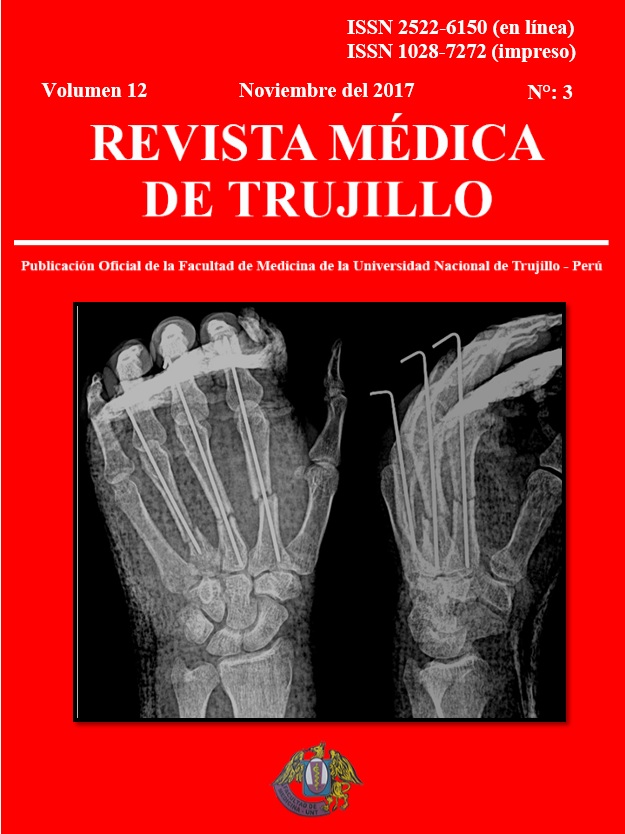Ictus isquémico y síndrome de apnea obstructiva del sueño. ¿cual es la evidencia de la relación?
Resumen
El síndrome de apnea obstructiva del sueño (SAOS) es un trastorno respiratorio del sueño, cuya prevalencia está en incremento mundialmente y la importancia de su diagnóstico radica en su asociación con eventos vasculares cardiacos y cerebrales, trastornos metabólicos, deterioro en algunas funciones mentales, accidentes laborales, accidentes de tránsito e incremento de mortalidad. En los últimos 20 años se ha obtenido evidencia importante de la relación entre SAOS y uno de los principales factores de riesgo cardiovascular, la hipertensión arterial; que a la vez es un factor etiológico de ictus isquémico. Posteriormente la evidencia de la asociación entre SAOS e ictus isquémico ha ido en aumento. Hemos revisado los trabajos mas importantes sobre el tema, con el objetivo de establecer cual es relación entre ambas patologías, los mecanismos fisiopatogénicos propuestos y las evidencias para sustentar si el tratamiento del SAOS tiene algún impacto en la ocurrencia del ictus isquémico y en modificar la evolución clínica post ictus.
PALABRAS CLAVE: Ictus, apnea, sueño, CPAP.
Citas
Johnson K, Johnson D. Frecuency of sleep apnea in stroke and TIA patients: a meta-analysis. J Clin Sleep Med. 2010; 6(2):131 – 7.
Chan W, Coutts SB, Hanly P. Sleep apnea in patients with transient ischemic attack and minor stroke: oportunity for risk reduction of recurrent stroke? Stroke. 2010; 41(12): 2973 -5.
Yaggi HK, Concato J, Kernan WN, Lichtman JH, Brass LM, Mohsenin V. Obstructive sleep apnea as a risk factor for stroke and death. N Engl J Med. 2005; 353:2034-41.
Redline S, Yenokyan G, Gottlieb DJ, Shahar E, O'Connor GT, Resnick HE, et al. Obstructive sleep apnea-hypopnea and incident stroke: the sleep heart health study. Am J Respir Crit Care Med. 2010; 182:269-77.
Li M, Hou W, Zhang X, Tang Z. Obstructive sleep apnea and risk of stroke: A meta-analysis of prospective studies. International journal of cardiology. 2014; 172 (2) 466 -9.
Das A, Khan A. Obstructive sleep apnea and stroke. Expert Rev Cardiovasc Ther.2012; 10(4), 525–535.
Mansukhani MP, Bellolio MF, Kolla BP, Enduri S, Somers VK, Stead LG. Worse outcome after stroke in patients with obstructive sleep apnea: an observational chort study. J Stroke Cerebrovasc Dis. 2011; 20 (5): 401 – 5.
Aaronson J, van Bennekom C, Hofman W, van Bezeij T, van den Aardweg J,Groet E, et al. Obstructive Sleep Apnea is Related to Impaired Cognitive and Functional Status after Stroke. Sleep. 2015; 38(9):1431–7
Marín JM, Carrizo SJ, Vicente E, Agustí A. Long-term cardiovascular outcomes in men with obstructive sleep apnoea-hipopnoea with or without treatment with continuous positive airway pressure: an observational study. Lancet. 2005; 365: 1046-53.
Parra O, Arboix A, Montserrat JM, Quinto L, Bechich S, Garcia-Eroles L. Sleep-related breathing disorders: impact on mortality of cerebrovascular disease. Eur. Respir J. 2004; 24(2), 267– 72.
Tomfohr L, Hemmen T, Natarajan L, Ancoli-Israel S, Loredo J,Heaton R, et al. Continuous Positive Airway Pressure for Treatment of Obstructive Sleep Apnea in Stroke Survivors: What do we really know? Stroke. 2012; 43(11): 3118– 23.















